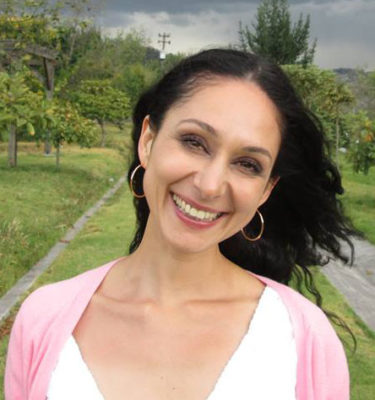12 September 2018 · Global Partnership for Zero Leprosy
Meet Alice Cruz, UN Special Rapporteur
Courtenay Dusenbury, Secretariat Director, recently spoke with Ms. Alice Cruz, the UN Special Rapporteur on the elimination of discrimination against persons affected by leprosy and their family members. Her mandate includes reporting on progress made by UN states for the effective implementation of the Principles and Guidelines for the elimination of discrimination against persons affected by leprosy and their family members (approved at the General Assembly in 2010); engaging in dialogues with states and other stakeholders with a view of enforcing the human rights of persons affected and their families; and raising awareness of the rights of persons affected by leprosy.
In this interview, Alice discusses her charge as Special Rapporteur and how that might align with the partnership’s efforts.
Although your term is limited to three years, you have an ambitious mandate. What are the opportunities and challenges?
The opportunities and challenges are linked. The mandate represents a major opportunity for bilateral decision-making. The challenge is that it depends on UN states to cooperate with the mandate. The mandate is a limited time frame; some states could just wait for the mandate to end. Another barrier in many states is the idea that leprosy no longer exists.

Overall, we have an opportunity to raise awareness about leprosy on an international scale, particularly in the human rights community. We can mainstream leprosy in the human rights systems, and work within human rights mechanisms. If leprosy becomes part of this sector it will stay on the agenda.
We have noticed a movement in countries like India to end discriminatory laws. What are your thoughts about this?
It’s a very positive development, and is happening because of strategic litigation undertaken by civil society. Of course, the discriminatory laws are not the only issue. Discrimination is also based on structural factors and social inequities. A quicker way to end discrimination would be through affirmative action. We also need to ensure that persons affected participate in the public sphere, as well as in decision-making.
Our Research Agenda Working Group will develop an aligned research agenda to support advocacy for investment. What do you think are the major research questions that need to be answered?
One problem is lack of evidence regarding stigma and discrimination, and the linkage between that and health outcomes. Well-being isn’t restricted to early diagnoses alone. It goes much further.
Well-being includes understanding the interaction between medical treatment and the social positioning of the person affected.
There hasn’t been much evidence on these issues; scientific research has been more devoted to specific medical issues related to transmission.
There’s an idea that stigma affects slow diagnoses, but we also need to better understand the structural life conditions of persons affected. For example, persons with leprosy may not have money for transportation to health clinics or women living in highly patriarchal societies may not be able to access medical services without the authorization of their husbands or fathers. We need disaggregated data and better knowledge of these issues in order to translate knowledge into policy.
This kind of research is not easy or quick, but it is very important.
Our Operational Excellence Working Group will focus on programmatic work. Through this working group, we plan to develop a toolkit of best practices for countries. What are your recommendations for addressing stigma and discrimination in our toolkit?
A toolkit is wonderful and needed. The more successful strategies for stigma and discrimination are not medically-based. It will be important to adjust strategies to cultural and local realities. A very medicalized message won’t be internalized by people. There may need to be research on how the message can be convened in different cultural contexts.
Discrimination is not the same everywhere; it depends on social and political issues. Best practices need to be contextualized and adjusted for different target populations.
Yes, we agree that a diagnostic kit or vaccine alone can’t address this. Issues need to be addressed through human relations.
Yes, an example of this is a young 10-year-old boy in rural Brazil of whom I’ve heard a few days ago through the Brazilian organization of persons affected (MORHAN). He was diagnosed with leprosy and already had a very severe impairment on his foot. He was shut out from school, which is a serious violation of his rights, yet possible because the boy already belongs to a disadvantaged and vulnerable layer of the Brazilian society. He had difficulty accessing medical services as his mother can’t leave her job to take him to the clinic. Consequently, he was not using multidrug therapy. So, all these components are social, not medical.
You’ve given us a better understanding of these complex issues, Alice. We look forward to working closely with you and welcome your guidance for the partnership.
I appreciate the partnership’s sensibility toward the interconnection of the medical and social dimensions of leprosy. I hope we can find ways to reinforce each other’s work.
Related Links
Battling exclusion: giving a voice to women affected by leprosy